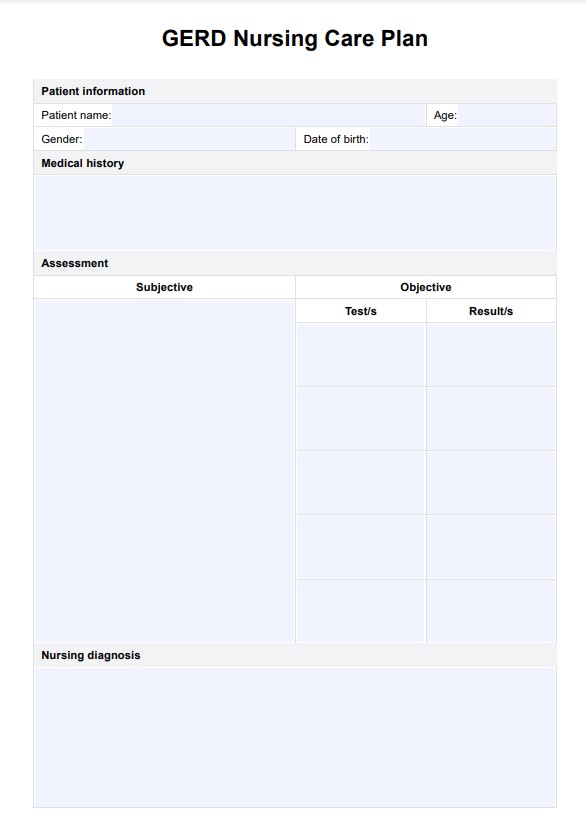GERD nursing care plans are structured frameworks healthcare professionals use to assess, manage, and support patients with gastroesophageal reflux disease (GERD). These plans incorporate nursing diagnoses, interventions, and expected outcomes tailored to each patient's unique needs.

Gerd Nursing Care Plan
Discover our comprehensive GERD Nursing Care Plan template with a detailed example. Ideal for healthcare professionals. Free PDF download available.
Gerd Nursing Care Plan Template
Commonly asked questions
Interventions for patients with GERD include assessing and managing symptoms such as heartburn and regurgitation, educating patients about dietary modifications to avoid trigger foods, and promoting lifestyle changes like weight management and elevating the head during sleep.
When explaining GERD to a patient, it is important to describe it as a chronic condition where stomach acid frequently flows back into the esophagus, causing irritation and discomfort. Use simple language to explain common symptoms, such as heartburn and regurgitation, and emphasize that lifestyle factors, such as diet and weight, can influence the severity of symptoms.
EHR and practice management software
Get started for free
*No credit card required
Free
$0/usd
Unlimited clients
Telehealth
1GB of storage
Client portal text
Automated billing and online payments











